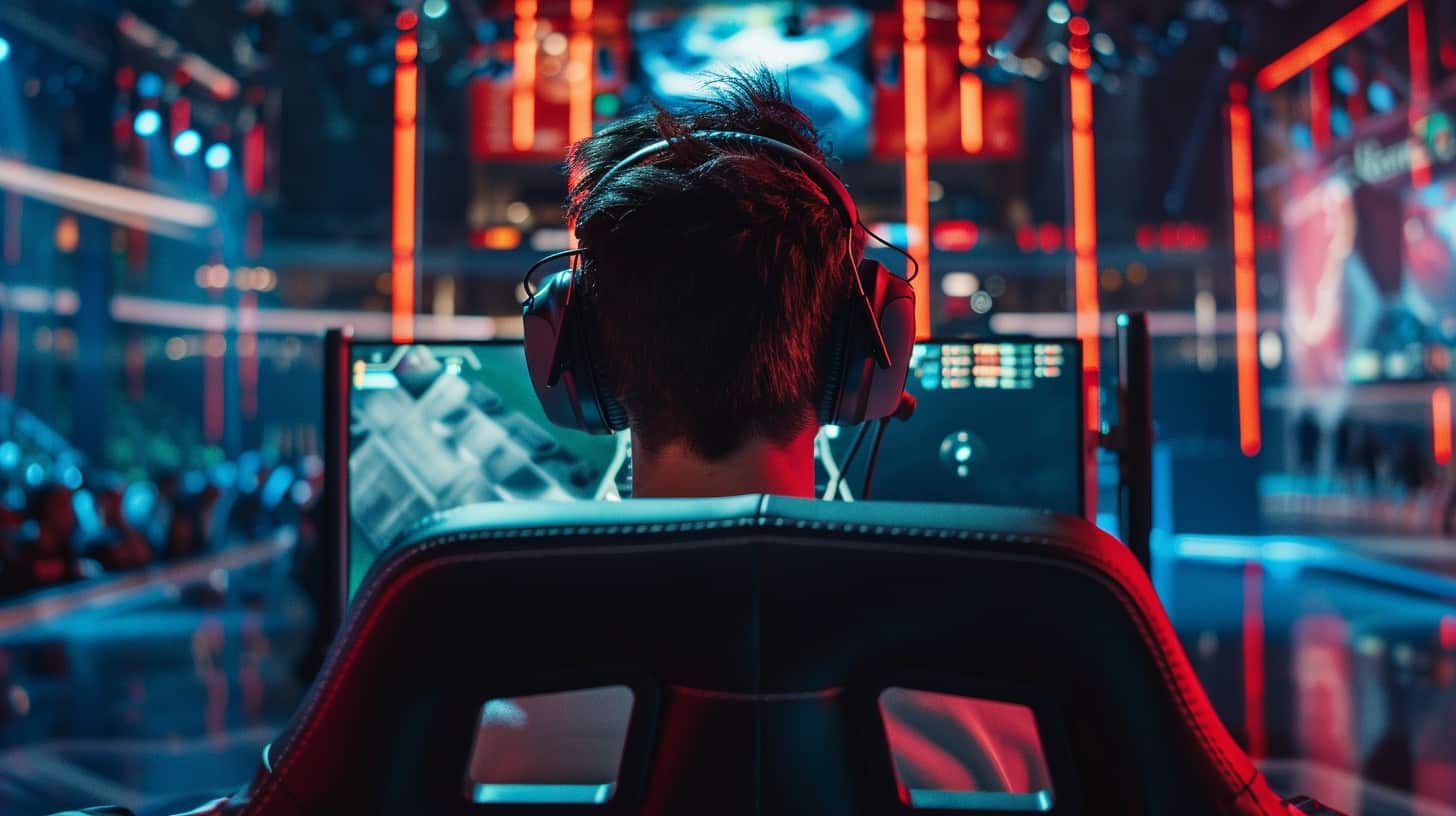Is the debate around video games being a true sport making your head spin? Believe it or not, competitive gaming has been on a rapid climb since the late 1970s. Our article breaks down why this digital competition deserves to stand in the sports arena.
Ready to jump into the action?
Key Takeaways
Video games require teamwork, strategy, and communication just like traditional sports. Players work together to win games in competitions that are as intense as any physical sport.
Professional gamers face real physical demands during matches, with heart rates and stress levels comparable to athletes in traditional sports.
Esports events attract massive audiences, both online and at venues, showing the high entertainment value and fan engagement similar to conventional sports.
Gaming offers inclusivity, allowing people of all abilities to compete equally. Over 20% of casual gamers have disabilities but find video games a welcoming space.
Colleges offer scholarships for competitive gaming, recognizing esports players’ dedication and skills by supporting their education through what they love doing.
Table of Contents
The Case for Video Games as a Sport
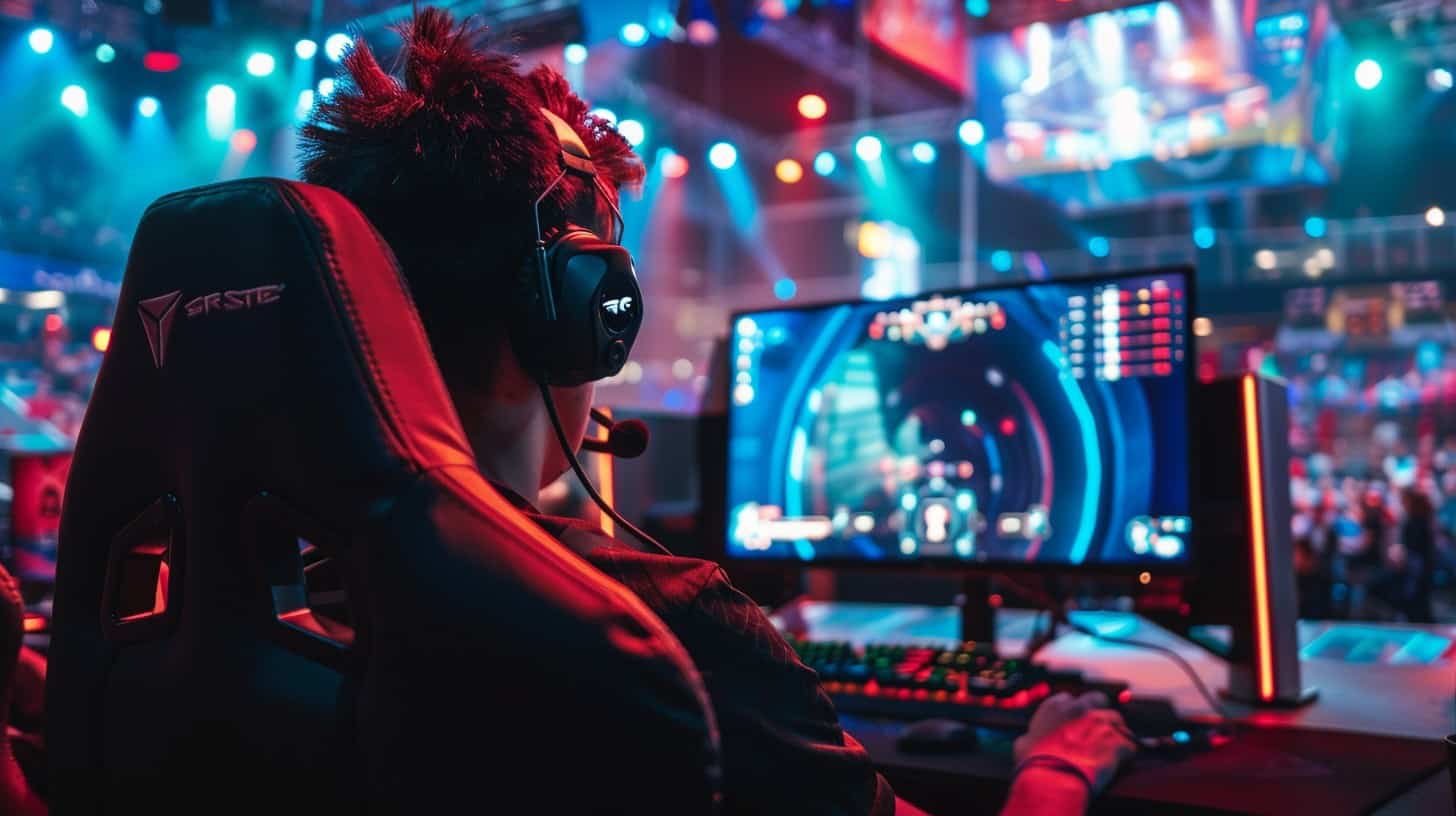
Video games are stepping up to the plate, swinging hard to be recognized as a sport. They’ve got everything from nail-biting competitions to players dedicating their lives, just like traditional athletes.
Competition, Wins, and Losses
In the gaming world, victory and defeat are as clear as day and night. Players dive into virtual battles, heart pounding, fingers flying over controls. Every match is a roller coaster of emotions.
One minute you’re on top of the world, racking up points like there’s no tomorrow. The next minute, you’re biting your nails, hoping for a comeback that feels just out of reach. These contests push gamers to their limits, demanding quick-thinking and rapid reflexes.
Teamwork also plays a big part in climbing to the top—or facing the agony of defeat. Working with teammates in an esports arena feels just like orchestrating a winning play on the football field or setting up that perfect basketball shot—it’s all about communication and strategy.
This blend of competition and teamwork sets the stage for talking about how video games foster unity amongst players around the globe.
Teamwork and Communication
Playing video games like Splatoon and Minecraft isn’t just about having fun. These games require players to talk, plan, and work together to win. It’s a lot like being on a sports team – everyone has a role, and success comes from good teamwork and clear communication.
Gamers learn fast that yelling “I’m open!” in Overcooked means “Pass me the tomatoes!” just as much as it would mean “Throw me the ball!” in soccer.
Professional gamers take this to another level. They spend hours every day practicing not just their moves, but also how they communicate with each other. During big tournaments, you can see them wearing headsets, constantly talking back and forth.
This isn’t casual chat; it’s strategic.
Every word counts in making split-second decisions that could lead to victory or defeat. And let’s face it – winning together feels way better than winning alone.
Athletic Ability and Physical Activity
You might think sitting in a chair, staring at a screen, doesn’t require much physical effort. But, pro gamers face real physical challenges. Their hearts race like they’re running sprints.
Hands sweat as if they’re lifting weights. It’s all about precision under pressure, fast reflexes, and endurance to make it through marathon gaming sessions.
Next up, let’s dive into the excitement of fans cheering in an esports stadium and the sheer entertainment value games bring.
Fans and Entertainment
Esports explode with fans just like any stadium-packed football game. Imagine, over 173,000 people gathering in Poland to watch gamers battle it out. That’s not fantasy; it happened at the 2017 World Championship.
The buzz, the cheers, and sometimes even tears – esports events are a rollercoaster of emotions for both players and spectators. Fans don’t just sit back; many dive into betting on their favorite teams, finding real money options here.
This spectacle draws in millions online too, eclipsing traditional sport viewership numbers. It proves gaming isn’t hidden in basements anymore; it’s front and center stage, with a global audience hooked on every play.
Next up? Let’s talk about how all this dedication transforms into mastery through practice and training.
Practice, Dedication, and Training
To make it in eSports, players put in hours of practice daily. Just like a violinist plays scales to stay sharp, gamers work on their strategies and reflexes. They dedicate chunks of time every day to mastering the games they compete in.
Whether it’s shooting enemies or scoring goals, top-notch players know that success doesn’t happen overnight. It takes sweat and determination.
Proper nutrition and staying hydrated are also part of the training routine for these athletes; yes, athletes! To avoid injuries like wrist strain or elbow pain, many include physical exercises in their schedule too.
Picture someone doing wrist stretches beside their gaming setup – that’s common in the eSports world. Now, onto how scholarships play into all this hustle.
College Scholarships Opportunities
Believe it or not, playing video games can pay off your college tuition. More than 81 schools in the National Association of Collegiate Esports are ready to give scholarships for competitive gaming.
Yes, you heard that right. Your skills in front of the screen could actually help you get through school without drowning in student loans.
But it doesn’t stop there. Organizations like FunTech and iD Tech are stepping up their game too. They offer summer tech camps and online courses focused on coding and developing video games – perfect for gamers looking to level up their skills during the break.
So, next time someone tells you gaming won’t help with real life, you know what to say! Gaming might just be your ticket to a brighter future. Now, let’s explore how gaming demands more than just sitting around – welcome to the world of physical demands in professional gaming!
The Physical Demands of Competitive Gaming
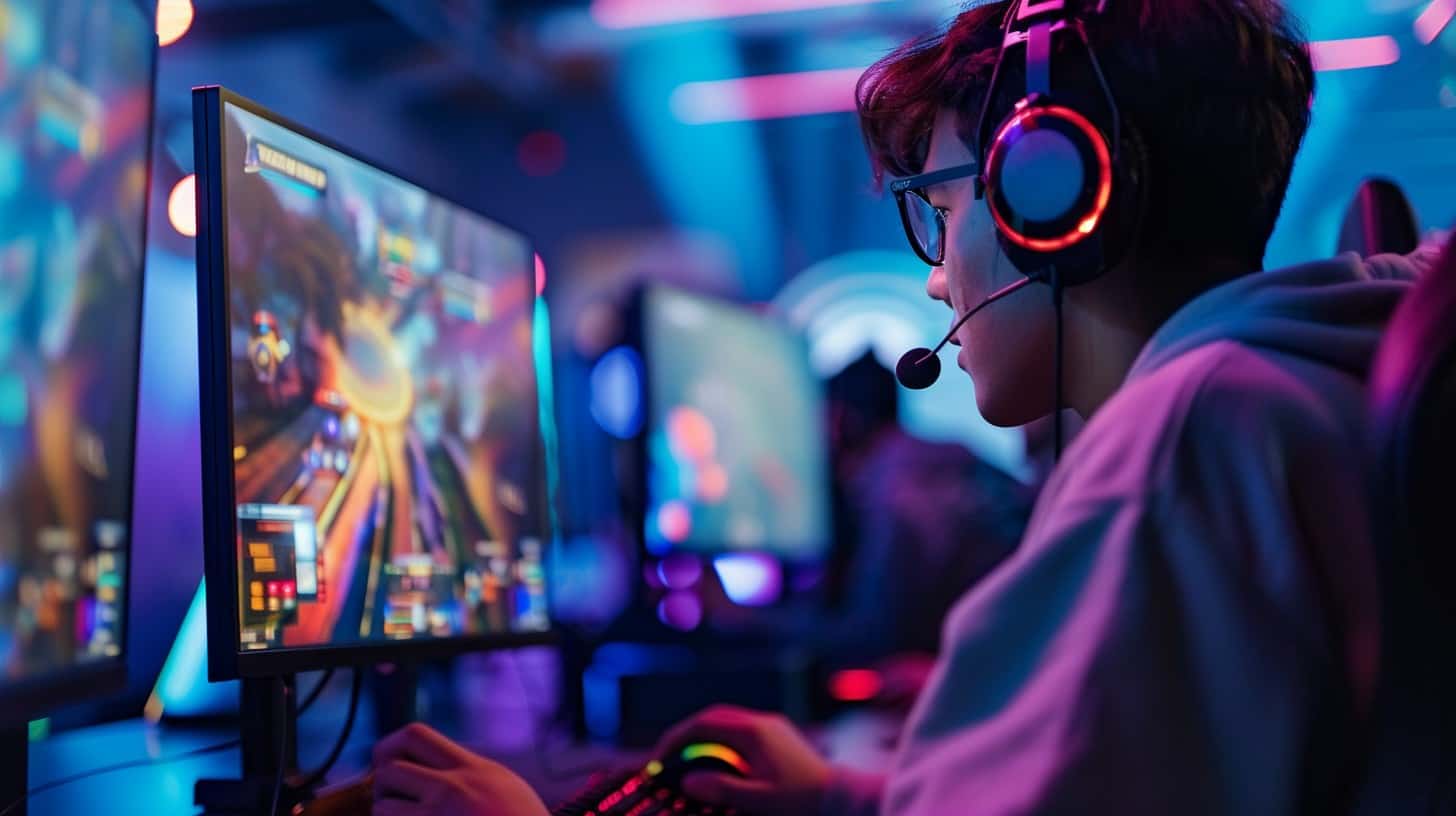
Competitive gaming is no walk in the park. Picture esports athletes during intense matches, their hearts racing as if they’re running a marathon. Studies show these gamers’ heart rates can skyrocket to 160–180 beats per minute, similar to long-distance runners pushing themselves to the limit.
Their bodies produce stress hormones at levels you’d see in Formula One drivers dealing with high-speed turns and life-or-death decision-making.
Now, imagine sitting at your computer, but it’s not just casual browsing or watching funny videos. In the world of professional gaming, players interact with their computers like virtuosos playing a piano—about 400 clicks per minute! That’s right; these athletes possess motor skills sharpened to perfection through endless hours of practice.
A study by a prominent sports university in Germany even highlighted this physical aspect of gaming, comparing pro gamers to traditional athletes in terms of physical demands and training requirements.
This isn’t just about having fast fingers; it’s an exhaustive regimen that forges both mind and body for competition at the highest level.
Inclusivity in Gaming
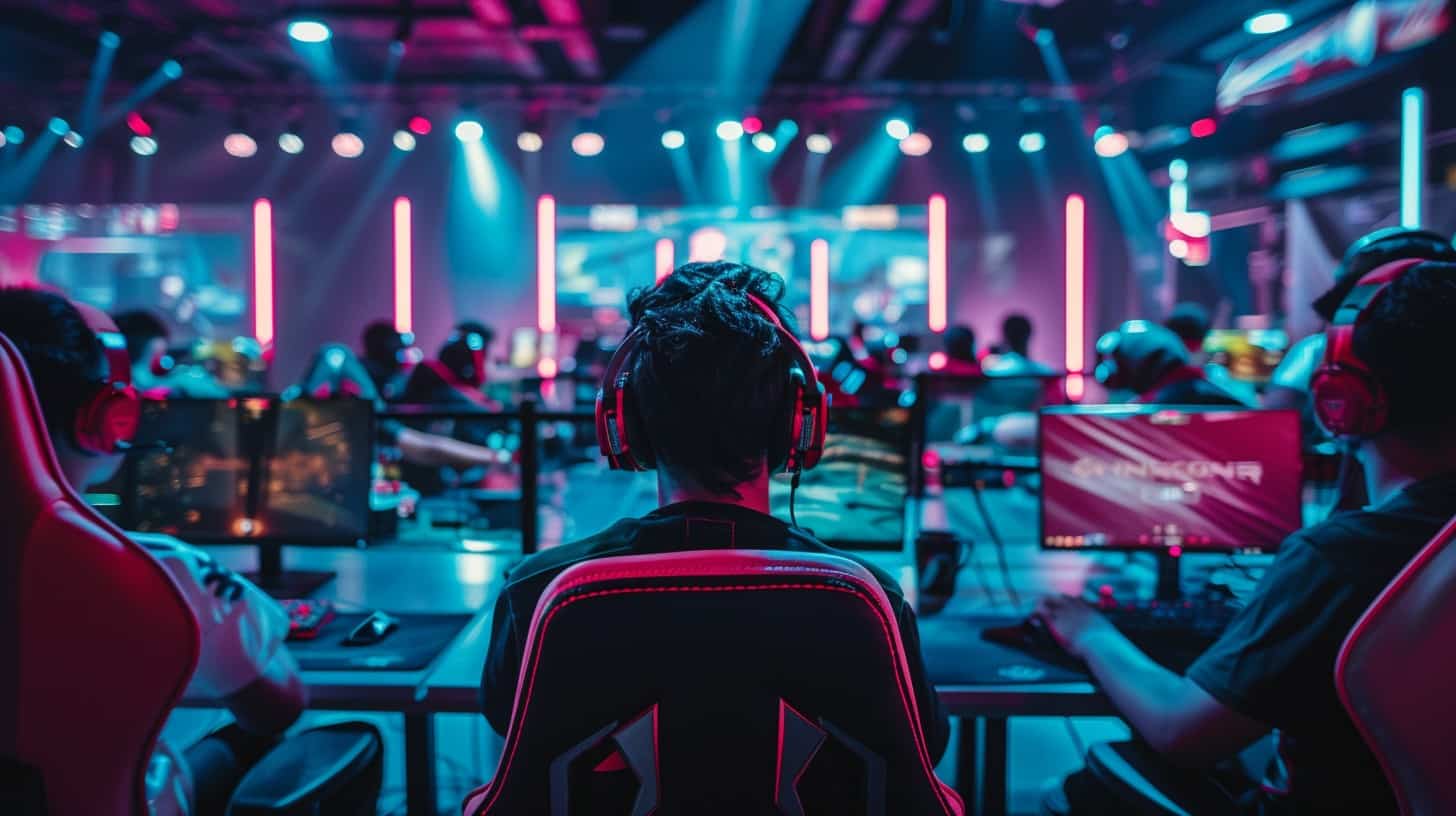
Shifting gears from the physical side, let’s talk about how gaming opens doors for everyone. Over 20% of casual players face challenges with their abilities in some way. But here’s the cool part—video games tear down barriers.
They offer a space where everyone can play, compete, and win, regardless of physical or mental hurdles. Think about it like a digital playground that’s open to all kids.
Games are also magic keys for kiddos with autism. They help these young ones boost their social skills and get better at interacting. Plus, they learn that making mistakes is okay—it’s part of growing up and getting better at anything we do.
And isn’t it amazing? Just by picking up a controller, someone can find comfort and confidence in ways they might struggle to off-screen.
The Case Against Video Games as a Sport

Jumping from the idea of inclusivity, we hit a snag with video games being seen as sports. A big point — video games miss out on the hustle and muscle that real-world sports are known for.
You won’t break a sweat or run laps around your living room during an intense gaming session. This lack of physical activity is what makes some people pause. They say, “Hey, isn’t moving around part of what makes something a sport?”.
Then there’s concern about kids getting stuck to screens like glue and not moving enough. We hear stories about this leading to couch potato lifestyles. And let’s not forget Tim Warwood’s views—he’s no fan of mixing computer games with snowboarding thrills at the Winter X Games.
He feels it’s mixing apples and oranges – or should we say, joysticks and snowboards? Traditionalists argue that without the action you see in soccer fields or basketball courts, calling gaming a ‘sport’ stretches the term too far.
The Debate: Are Gamers Athletes?
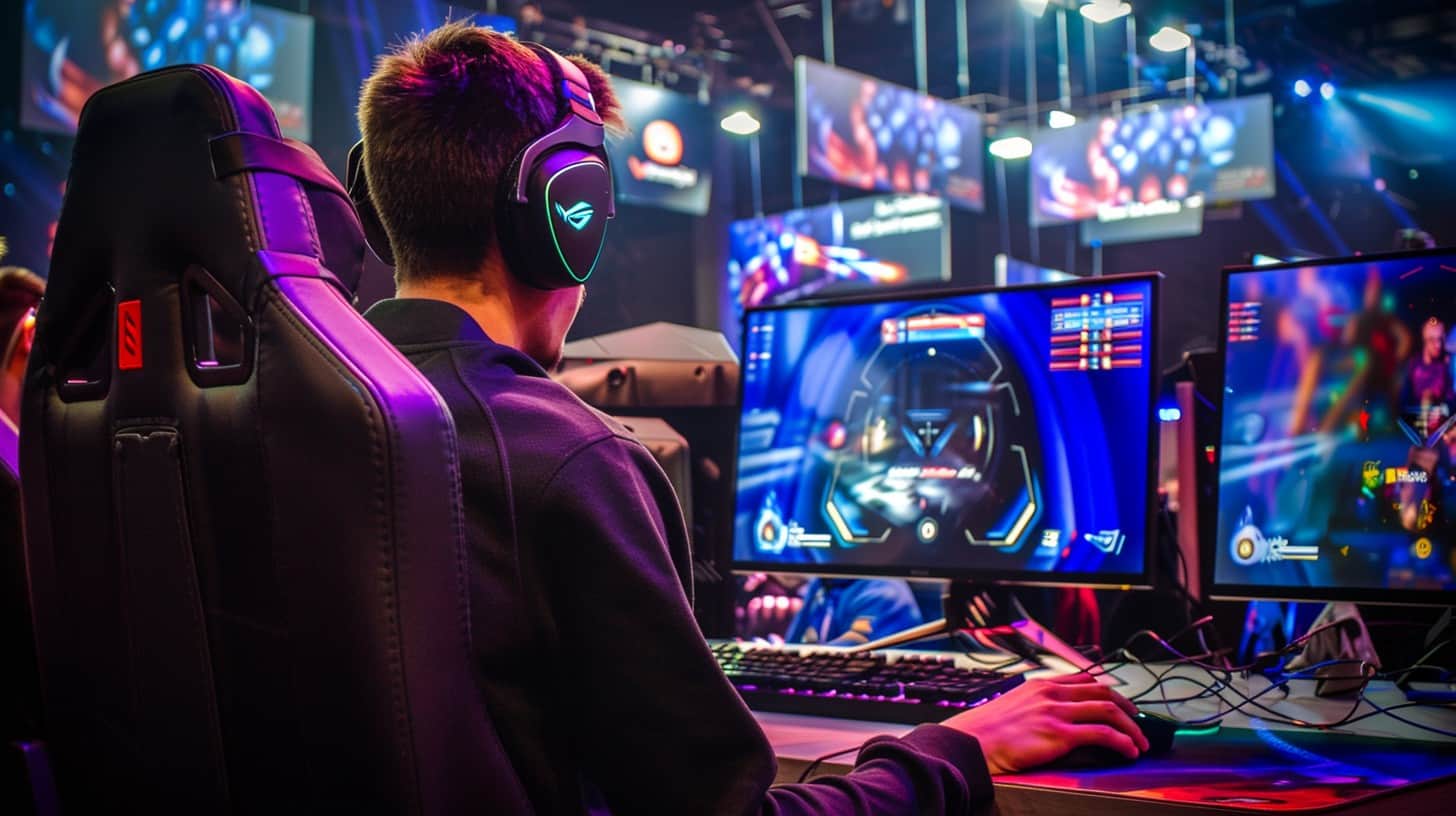
Some people scratch their heads at calling gamers athletes. But, look at the facts. Competitive players put in hours of practice and show off skills that take hard work to develop.
Just like in football or basketball, they’re aiming for the win and relying on their team. Their heartbeats race up to marathon runner levels during intense moments of play. This isn’t child’s play; it’s serious competition.
Inclusion is a big deal, too. Gaming welcomes everyone, with over 20% of casual participants living with disabilities. It evens out the playing field in a way most sports can only dream about.
So, are gamers athletes? They train tough, face physical demands, and bring people together for some nail-biting showdowns. Sounds pretty athletic to me!
Faqs About Whether Video Games Should Be Considered a Sport
What makes esports a real sport?
Just like basketball or soccer, esports players train hard, have coaches, and compete in fierce competitions. It’s not just about playing games; it’s about strategy, quick thinking, and teamwork.
Can playing video games really make you smarter?
You bet! Video games can boost your problem-solving skills and make your brain more flexible. It’s like exercise for your mind.
Why should schools recognize esports as a sport?
Including esports in school sports programs could lead to better grades and higher academic achievement for students who participate. Plus, it’s a blast!
Is there any career in playing video games professionally?
Absolutely! Being an esports athlete can be a serious job with contracts, sponsorships, and even big cash prizes up for grabs.
How do video games bring people together?
Video games create communities where players from all over the world meet online to share strategies or just have fun together. They’re like virtual playgrounds.
Do you need special equipment to get into esports?
While having a good setup helps, what matters most is skill and dedication—just like any other sport out there.
